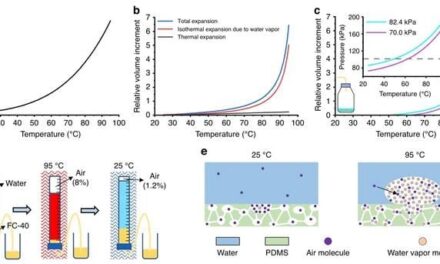Summary BioView’s liquid biopsy test, developed in collaboration with a UK partner, offers a non-invasive method to detect HER2 status in metastatic breast cancer patients, providing real-time insights for improved treatment decisions.
Takeaways
- Enhanced HER2 Detection: BioView’s liquid biopsy test identified HER2-positive status in patients previously classified as HER2-negative via tissue biopsy, showcasing its potential to complement traditional methods and improve treatment precision.
- Non-Invasive and Real-Time Monitoring: Utilizing circulating tumor cells (CTCs) from blood samples, the test offers a safer, repeatable alternative to tissue biopsies, enabling dynamic monitoring of HER2 status over time.
- Impact on Targeted Therapies: By identifying HER2 status changes, the test can help guide the use of advanced HER2-targeted therapies like Herceptin and Enhertu, optimizing treatment outcomes for metastatic breast cancer patients.
BioView, a company developing advanced medical imaging systems for cancer cell detection, announced the completion of the first stage of its joint project with a partner from the United Kingdom. The companies presented results from their collaborative liquid biopsy development effort at the prestigious AACR International Liquid Biopsy Conference.
Liquid Biopsy Test for Metastatic Breast Cancer Patients
The two companies are co-developing an innovative liquid biopsy test to detect HER2 genetic amplification and protein expression in circulating tumor cells (CTCs) collected from the blood of metastatic breast cancer (MBC) patients. The kit combines a microfluidic CTC enrichment system together with BioView’s advanced AI based automated imaging and analysis technology, offering a practical and safer methodology compared to traditional tissue biopsies for repeated patient examination.
CTCs, cancerous cells released from primary tumors or metastases into the bloodstream, can be analyzed using a simple blood test. This approach enables HER2 status monitoring without the risks and complications associated with tissue biopsies. Additionally, it provides a more comprehensive representation of HER2 expression in both primary and metastatic tumors, unlike tissue biopsies which are confined to specific tumor regions.
Promising Results and Key Insights
The study analyzed blood samples from 43 metastatic breast cancer patients. Notably, three out of five patients initially classified as HER2-negative via tissue biopsy were later identified as HER2-positive using the liquid biopsy test. These findings highlight the test’s potential as a complementary tool to tissue biopsies, enabling real-time monitoring of HER2 status changes post-diagnosis and improving treatment decisions.
Further Reading
According to the U.S. National Institutes of Health (NIH), approximately 81% of breast cancer patients are HER2-negative at initial diagnosis. Studies indicate this status may change over time. Liquid biopsy blood tests can enable real-time monitoring of such patients, identifying those who may benefit from targeted HER2 therapies like Herceptin or Enhertu.
“The results from our joint development presented at the AACR conference mark a significant milestone,” says Chassidy Johnson, PhD, chief scientist at BioView. “They underscore the analytical power of our test to identify diverse HER2 expressions and its potential to identify patients who could benefit from advanced HER2-targeted therapies.”





